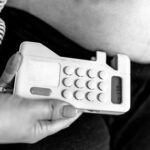Are you wondering, “When does pregnancy symptoms start?” Understanding the early signs of pregnancy is essential for every woman who is trying to conceive or suspects she may be pregnant. From changes in the menstrual cycle to common and less common symptoms, it’s important to be aware of what to look for and when to expect them.
The early signs of pregnancy can often be subtle and easily overlooked, so having a good understanding of what to look for can help women recognize these symptoms sooner. By understanding the menstrual cycle and ovulation, women can better grasp the timing of when pregnancy symptoms may start to appear.
In this article, we will explore the early signs of pregnancy, including common symptoms such as nausea, fatigue, and breast changes, as well as lesser-known symptoms like cravings, frequent urination, and mood swings. We will also discuss the impact of hormonal changes on pregnancy symptoms and provide information on when to take a pregnancy test. Being aware of these early signs and seeking medical advice when necessary is crucial for ensuring a healthy pregnancy journey.
Understanding the Menstrual Cycle and Ovulation
The menstrual cycle and ovulation play a crucial role in understanding when pregnancy symptoms start. Ovulation, the process in which an egg is released from the ovaries, occurs around the middle of a woman’s menstrual cycle. This typically happens about 14 days before the start of her next period. Understanding ovulation is important because it is during this time that fertilization can occur if sperm is present in the reproductive tract.
Women who are trying to conceive often track their menstrual cycles and ovulation using various methods such as tracking basal body temperature, cervical mucus changes, and ovulation predictor kits. By doing so, they can identify their fertile window – the days leading up to and including ovulation – and increase their chances of becoming pregnant.
It’s important to note that pregnancy symptoms usually start around one to two weeks after conception, which aligns with when a woman might expect her next period if she did not become pregnant. This means that early pregnancy symptoms can begin as early as the first week after conception, but most women may not notice them until closer to when they expect their period to arrive.
Early Pregnancy Symptoms
It is natural for women to wonder when pregnancy symptoms start, as these early signs can vary from person to person. It’s important to remember that every woman’s body is different and may exhibit symptoms at different times. Understanding the early signs of pregnancy and when to expect them can help women recognize the changes in their bodies.
When it comes to early pregnancy symptoms, it’s essential to be aware of the potential signs and when they may start to appear. Here are some common early pregnancy symptoms and when women can expect to experience them:
- Nausea: Nausea, often referred to as morning sickness, can start as early as two weeks after conception.
- Fatigue: Feeling exceptionally tired or fatigued is another common symptom that may begin around the same time as nausea.
- Breast Changes: Swollen or tender breasts can occur as early as one to two weeks after conception.
In addition to these common early pregnancy symptoms, there are also less common signs that women should be mindful of. While not every woman may experience these symptoms, they are still important indicators of early pregnancy:
- Cravings: Some women may develop specific food cravings in the early stages of pregnancy.
- Frequent Urination: The need to urinate more frequently than usual can also be a sign of early pregnancy and may begin around six to eight weeks after conception.
- Mood Swings: Hormonal changes during pregnancy can cause mood swings, which might start around the same time as other symptoms.
Understanding the timeline for when pregnancy symptoms start and what to look out for can help women recognize the early signs of pregnancy. However, if any of these symptoms are experienced, it is important for women to seek medical advice for confirmation and guidance on proper prenatal care.
Common Early Pregnancy Symptoms
One of the most common questions that newly pregnant women ask is “When does pregnancy symptoms start?” The answer varies from woman to woman, but in general, early pregnancy symptoms can begin as soon as one week after conception. It’s important to note that every woman’s experience with early pregnancy symptoms is different, so what one woman may experience at four weeks pregnant, another may not experience until six weeks.
Nausea, also known as morning sickness, is a classic early pregnancy symptom. This often begins around the sixth week of pregnancy and can range from mild queasiness to severe vomiting. Similarly, fatigue is another common early sign of pregnancy that can start as early as the first week after conception. Many women report feeling unusually tired as their bodies work hard to support the growing embryo.
Breast changes are also a prominent early symptom of pregnancy. Some women notice tenderness or soreness in their breasts as early as two weeks after conception. Additionally, the areolas (the area around the nipples) may darken and become more pronounced during the first trimester.
| Pregnancy Symptom | Typical Timing |
|---|---|
| Nausea | 6 weeks gestation |
| Fatigue | 1 week gestation |
| Breast Changes | 2 weeks gestation |
It’s important for expectant mothers to be aware of these early signs of pregnancy so they can seek medical advice and take appropriate prenatal care measures when needed.
Less Common Early Pregnancy Symptoms
During the early stages of pregnancy, women may experience a range of symptoms that go beyond the typical nausea and fatigue. These less common early pregnancy symptoms can be just as telling and are important to recognize for those who are trying to conceive or suspect they may be pregnant. Understanding and being aware of these symptoms can help women take proactive steps in caring for their health during this delicate time.
Cravings
One less common early pregnancy symptom that some women experience is unusual food cravings. While cravings are often associated with PMS, some women may notice a heightened or different type of craving when they are pregnant. This could include cravings for certain foods or even aversions to foods that were once enjoyed. While not all women experience cravings during pregnancy, it is worth noting if this symptom does arise.
Frequent Urination
Another less common early pregnancy symptom is frequent urination. While increased trips to the bathroom are often associated with the later stages of pregnancy, some women may find themselves needing to urinate more frequently in the early weeks as well.
This is due to hormonal changes and an increase in blood flow to the pelvic area, which puts pressure on the bladder. If you find yourself making more trips to the bathroom than usual, it could be a sign of early pregnancy.
Mood Swings
Mood swings are another less common early pregnancy symptom that some women may experience. Fluctuations in hormones during early pregnancy can impact mood and emotions, causing some women to feel more irritable or emotional than usual.
These mood swings can be difficult to manage but understanding that they could be related to pregnancy can provide reassurance. It’s important for both the woman experiencing these emotional changes and her support system to recognize this as a normal part of early pregnancy for some individuals.
The Impact of Hormonal Changes on Pregnancy Symptoms
During pregnancy, the body undergoes significant hormonal changes that can lead to a variety of symptoms. These hormonal shifts are essential for supporting the growth and development of the fetus, but they can also result in some uncomfortable side effects for the mother-to-be. Understanding the impact of these hormonal changes on pregnancy symptoms is crucial for expecting mothers.
HCG and Its Effects
One of the key hormones involved in pregnancy is human chorionic gonadotropin (HCG). This hormone is produced by the placenta shortly after implantation, and it plays a vital role in maintaining the production of progesterone by the corpus luteum during the early stages of pregnancy.
The presence of HCG in a woman’s body is what triggers a positive result on a home pregnancy test. Additionally, HCG levels are closely linked to many early pregnancy symptoms, such as nausea and breast tenderness.
Progesterone and Estrogen
In addition to HCG, levels of progesterone and estrogen also rise significantly during pregnancy. Progesterone is crucial for maintaining the uterine lining during early pregnancy and preventing contractions that could cause a miscarriage. However, it can also contribute to symptoms like fatigue and mood swings. Meanwhile, higher levels of estrogen may lead to breast changes and even more pronounced mood swings.
Understanding how these hormonal changes affect the body can help pregnant individuals anticipate when they may experience specific symptoms and seek appropriate support or medical advice when needed. Whether it’s coping with morning sickness or finding ways to manage fluctuating emotions, being aware of the impact of hormones on pregnancy symptoms is an essential part of preparing for this transformative journey into motherhood.
When to Take a Pregnancy Test
One of the most common questions that women have when they suspect they may be pregnant is when to take a pregnancy test. Understanding the timing of when to take a pregnancy test can help provide accurate results and alleviate some of the uncertainty that comes with early pregnancy symptoms.
In general, it is best to wait until you have missed your period before taking a pregnancy test. Most at-home pregnancy tests are designed to detect the presence of the hormone human chorionic gonadotropin (hCG), which is produced by the placenta after implantation occurs. Implantation typically takes place 6-12 days after ovulation, so waiting until after you have missed your period will give the hCG levels in your body enough time to reach a detectable level.
However, some at-home pregnancy tests claim to be able to detect pregnancy even before your missed period. These early result tests may be able to provide accurate results as early as 6-8 days after ovulation, but it’s important to keep in mind that the accuracy of these tests can vary.
If you choose to take an early result test and receive a negative result but still suspect you may be pregnant based on your symptoms, it may be worthwhile to wait a few more days and retest or schedule an appointment with your healthcare provider for further testing.
Conclusion
In conclusion, being aware of the early signs of pregnancy is crucial for individuals who are trying to conceive or those who may have had unprotected intercourse. Understanding the menstrual cycle and ovulation can help individuals track their fertility and recognize when pregnancy symptoms may start to appear. By paying attention to common early pregnancy symptoms such as nausea, fatigue, and breast changes, individuals can better understand their bodies and seek medical advice if necessary.
It is also important to be aware of less common early pregnancy symptoms such as cravings, frequent urination, and mood swings. These lesser-known signs can also indicate a potential pregnancy and prompt individuals to consider taking a pregnancy test. Additionally, understanding the impact of hormonal changes on pregnancy symptoms can provide valuable insight into why these changes occur in the body during early pregnancy.
Knowing when to take a pregnancy test is essential for accurately determining whether or not one is pregnant. Understanding the timing of when pregnancy symptoms start and when a test can accurately detect pregnancy hormones can alleviate uncertainty and provide peace of mind. If in doubt, seeking medical advice from a healthcare professional can offer further guidance and support during this potentially life-changing time.

Welcome to my fertility blog. This is a space where I will be sharing my experiences as I navigate through the world of fertility treatments, as well as provide information and resources about fertility and pregnancy.





